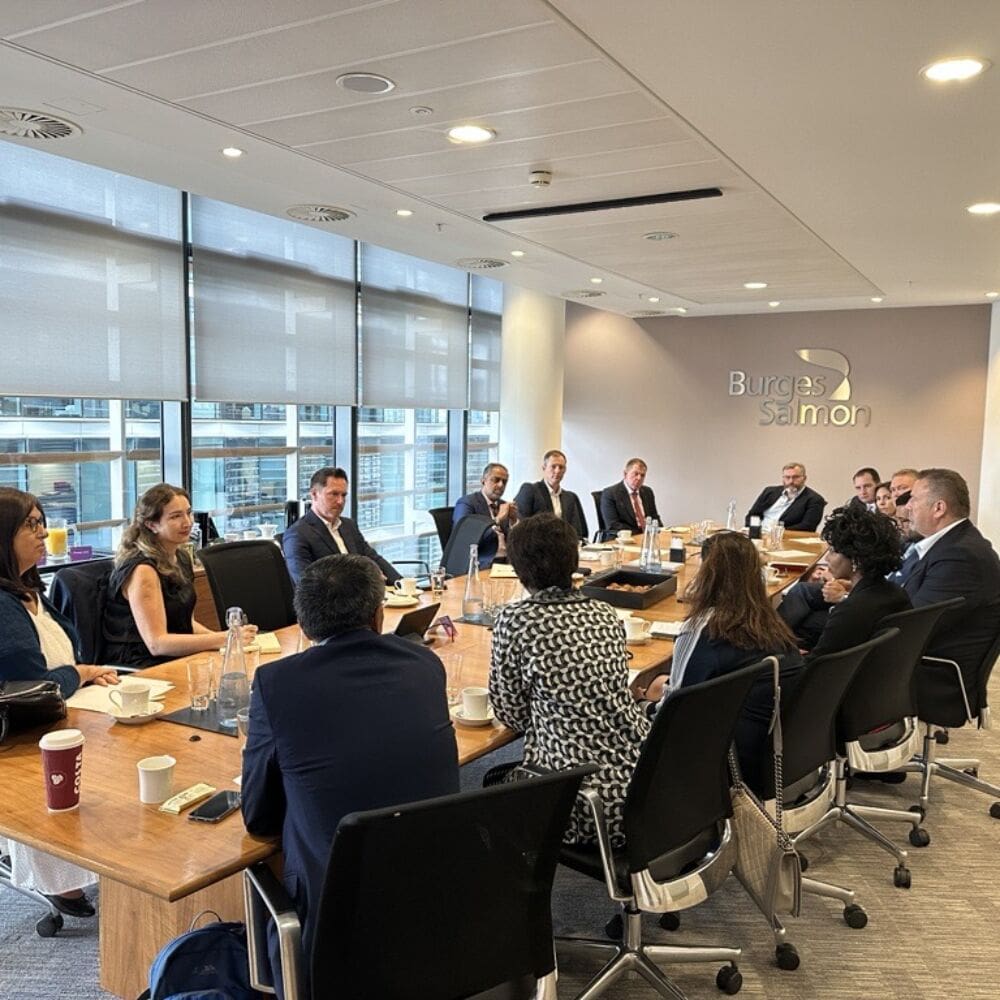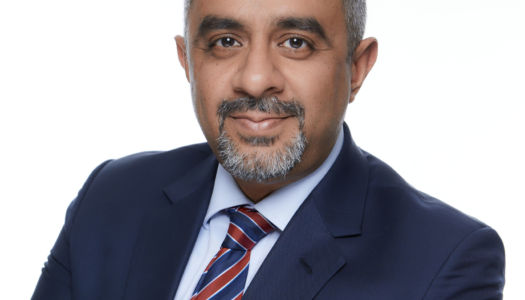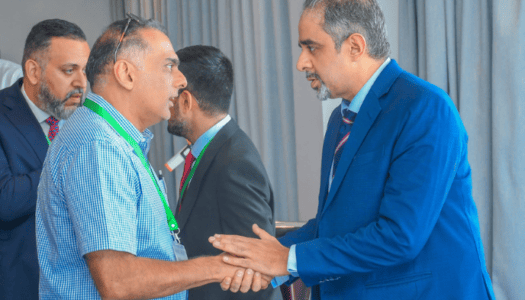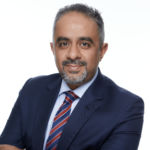On Wednesday 19 July, Robert Moore, Director – UK, hosted a breakfast roundtable at the offices of Burges Salmon in London, which was attended by 20 London-based intermediaries.
Key highlights from the discussions at the roundtable:
- Focussed on the African private wealth sector, the event opened with regional updates from Jersey Finance’s Global Head of Business Development, Allan Wood, and Director – Middle East, Africa and India, Faizal Bhana.
- South Africa has had good representation in Jersey for many years, with over £8 billion in Jersey focussed on private wealth business for high net worth families.
- New business is being supported through the Grindstone Accelerator programme and Knife Capital, for example, is investing in unicorns.
- Jersey Finance continues to support the growth of business with South Africa through its events programme with events planned through SAVCA, a number of its own networking and roundtable events, and its sponsorship of a STEP event in November.
- Kenya has been experiencing tax changes in its post-election period and there has been civil unrest in Nairobi. The Eurobond has been responsible for fiscal change – a refinancing was attempted and failed – and there has been a rise in taxes as a result. That said, the economy is functioning well but legal uncertainty remains.
- There is a sizeable amount of Chinese debt but the exact figure remains unknown. There is tax-free movement on some goods to increase market size.
- Private wealth is a significant area for opportunity in east and west Africa. The funds market is also growing, especially with the increase of US funds now investing into Africa.
- The next generation are hungry to do deals and they are looking at Europe and the UK through Jersey as their level of sophistication grows.
- Surrounding countries are also starting to look at opportunities, such as Tanzania and the Democratic Republic of the Congo.
- The greylisting doesn’t appear to have had a significant impact. Utility rates have increased, which has made it tough for those in the country, but has created external opportunities which has been good for the economy on the whole.
- The private sector is playing a huge role and the tech sector is the most advanced on the continent.
- The UAE has become a gateway in and out of South Africa, which started during the pandemic but is now becoming synonymous with stability and accessibility. Saudi Arabia is also increasingly looking towards Africa and there’s a greater emphasis on sustainable finance in general.
- Jersey continues to provide a well-regulated, stable and safe option, providing the highest standard of wealth protection.
Following the regional updates, the participants around the table shared their thoughts and experiences.
- These are exciting times in Nigeria – the Government can do good things if they are well managed. They have taken action as a result of the greylisting and this is a positive step.
- Tech millionaires really need support and loyalty still plays a huge part in doing business.
- Kenya has really changed and matured as a result of having three different Governments in recent years. Business is still strong and the new expressway has been a contributory factor.
- Clients still very much appreciate the personal service and being on the ground to meet in person makes a huge difference.
- Clients are increasingly looking for second passports (Portugal and Spain, in particular), which can cause problems for Jersey. However, Jersey continues to give security and stability over other jurisdictions.
- Other centres are growing such as Rwanda. There are also changes in investor confidence, which is building a blueprint for other developing countries such as Zambia, Zimbabwe and Malawi. In fact, Zambia has followed Rwanda’s example by creating a hub to feed/serve the Democratic Republic of the Congo, which is generating inward investment.
- Zimbabwe is showing a new-found resilience and the people are taking control. There is a lot of tech innovation and development in infrastructure, which could be seen as a model for South Africa.






